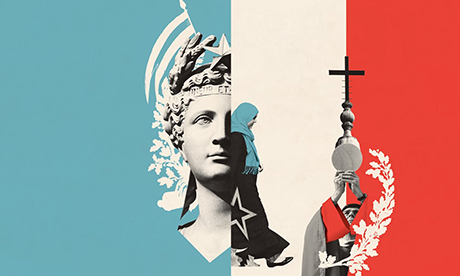State and church tension has been reignited in France over the dismissal of a high-profile principal. This has aggravated the debate over religious expression in French schools.
Following weeks of protests, Archbishop Laurent Ulrich of Paris has spoken out in defence of this freedom of expression.
Principal dismissal sparks tensions
The dismissal of Christian Espeso, principal of Immaculate Conception High School in Pau, southern France, has stirred national controversy. On 11 September, the local education authority removed Espeso from office, citing “breaching secularism” after he introduced confessions during school hours and required students to attend a conference led by a bishop.
“Many of us are stunned” stated the Diocese of Bayonne’s Directorate of Catholic Education on 13 September, calling the decision “totally disproportionate in light of the facts”.
Immaculate Conception High School, under Espeso’s leadership, ranked first in its region and fourth nationally.
Archbishop defends religious expression
Archbishop Ulrich addressed the controversy on Radio Notre Dame, emphasising the importance of religious expression within Catholic institutions.
“We must be able to proclaim the Gospel in Catholic schools” he stated. “There are people who want to silence us.”
The archbishop’s comments come as the debate intensifies over the role of Catholic schools in a secular society. Currently, Catholic schools educate about 17% of French pupils and represent 95% of all private schools in the country.
Balancing secularism and religious identity
French Catholic schools operate under a 1959 agreement that requires them to follow the same curriculum as public institutions while maintaining their Catholic identity. The state pays the salaries of their teachers who are inspected by the Ministry of Education. In return, the schools agree to welcome students of all backgrounds and make catechism classes optional.
However, the balance between state oversight and religious autonomy appears to be shifting. In January, a group of public education representatives called for an end to state funding for Catholic schools, claiming that the current system undermines France’s commitment to secularism.
Changing religious landscape
Philippe Gaudin, director of the Public Institute for the Study of Religions and Secularism, attributed the growing tensions to a shifting religious landscape in France.
“There is a huge decline in Christian religious practice” Gaudin told OSV News. “At the same time, there is a growing presence of Muslims who are loudly asserting their identity and their demands. This is something new. So the state is trying to put in place a public policy to manage all this.”
The dismissal of Espeso has become a flashpoint in this wider debate over how religious institutions operate within France’s secular framework.
